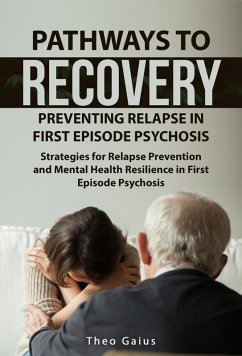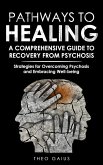The initial sections of the book lay a solid foundation on the conceptual understanding of psychosis, its symptoms, and the critical period following the first episode. It emphasizes the importance of timely intervention and the role it plays in altering the course of the individual's mental health journey. Through an exploration of the latest advancements in the field, the book presents evidence-based practices and therapeutic models that have shown promise in preventing relapse.
Subsequent chapters delve into personalized care strategies, underscoring the significance of tailoring interventions to meet the unique needs of each individual. The book introduces readers to a variety of therapeutic interventions, ranging from medication management and psychotherapy to community support and family involvement. It also addresses the critical aspects of building a support system and creating a conducive environment for recovery.
"Pathways to Recovery" also tackles the challenges of stigma and the barriers it creates in the path to recovery. It offers insights into effective communication strategies and advocacy to promote understanding and support for individuals experiencing psychosis.
One of the standout features of this book is its emphasis on resilience and empowerment. It provides practical tools and techniques for individuals to build their resilience, enhance their coping strategies, and actively participate in their recovery process. The book also highlights the importance of hope and the belief in recovery as central elements in preventing relapse.
For families and caregivers, "Pathways to Recovery" offers guidance on how to provide support, maintain a positive and supportive environment, and manage their own well-being while navigating the challenges of psychosis.
In its concluding sections, the book discusses the journey towards long-term recovery, including managing the risks of relapse, the importance of ongoing care, and strategies for maintaining mental health wellness. It encourages a holistic approach, considering not just the psychological, but also the social, emotional, and physical aspects of recovery.
"Pathways to Recovery: Preventing Relapse in First Episode Psychosis" serves as an essential resource for anyone involved in the care of individuals experiencing FEP, offering hope, knowledge, and practical strategies to support a journey towards sustained recovery and well-being.
Dieser Download kann aus rechtlichen Gründen nur mit Rechnungsadresse in A, B, BG, CY, CZ, D, DK, EW, E, FIN, F, GR, H, IRL, I, LT, L, LR, M, NL, PL, P, R, S, SLO, SK ausgeliefert werden.









